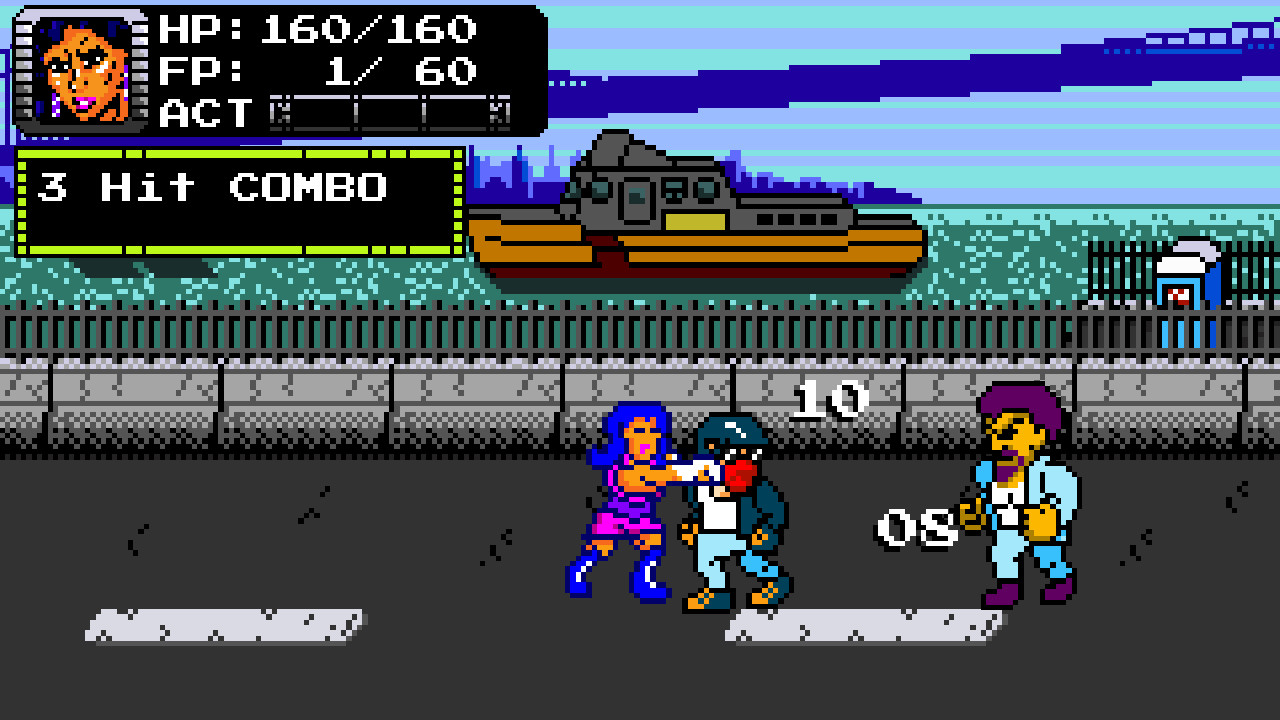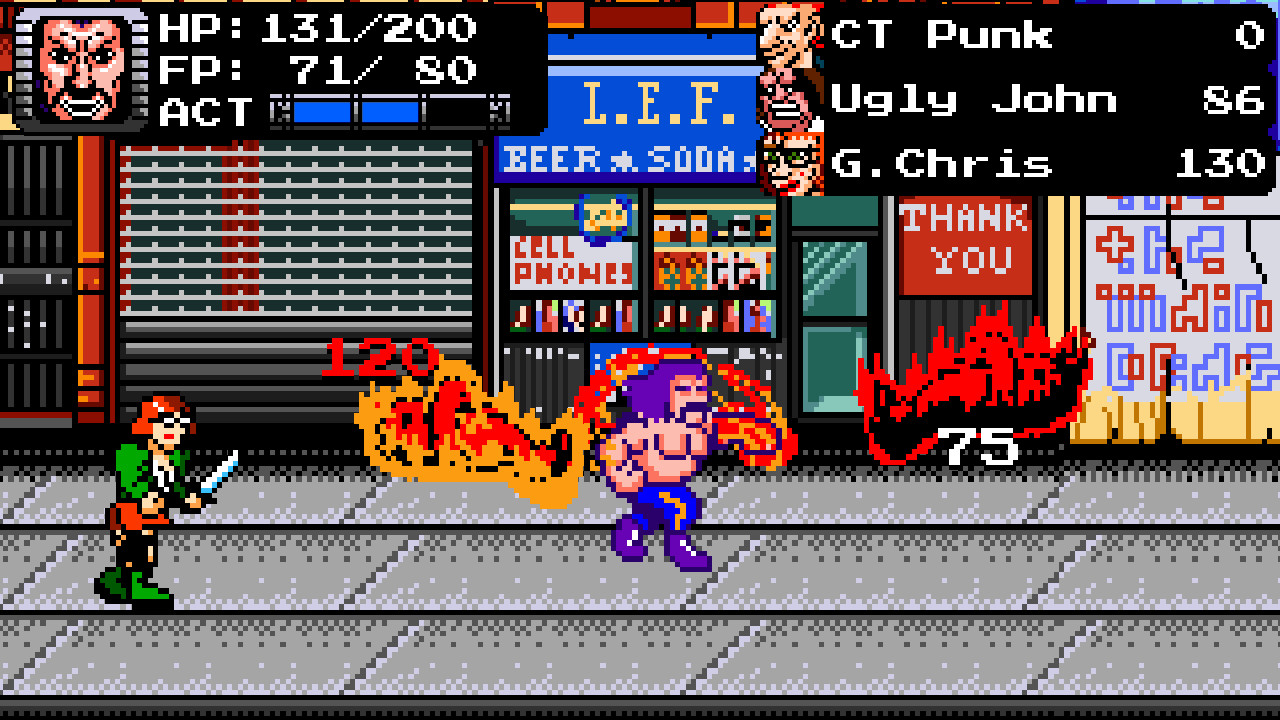Six years after the Treachery in Beatdown City Kickstarter, I've decided it was worth the wait
The journey was worth the $12 alone

I put $12 toward the Kickstarter for Treachery in Beatdown City on May 6, 2014. That's equivalent to $13.08 in today's money, accounting for inflation. I finally got my code for the game on March 30, 2020, and I played for the first time earlier this week. Was it worth the wait? Could anything be worth a six-year wait? Yes to both questions, though it helps if you weren't really waiting per se.
The only beat-em-up I've ever really loved was Teenage Mutant Ninja Turtles: Turtles in Time (mostly for the big "COWABUNGA!!!" voice sample at the end of every level). I respect brawlers like Double Dragon, Streets of Rage, and Fatal Fury for their place in history, but that's about it. My memory's kinda fuzzy, but I don't think I backed Treachery in Beatdown City because I particularly wanted to play it – I backed it because it seemed like a cool thing that should exist.
When I finally received the code, I was just happy that the developer, Shawn Alexander Allen, had finally finished his project. I'd loosely followed his progress through backer updates over the years, through relationship changes, layoffs, starting a family. It was gratifying to see this thing that had opened a window into his life for me close in its intended way.
Honestly, I had even less intention to actually play the thing. I'm busier at 30 than I was at 24 and I'm more choosy with how I spend my leisure time. I've also dropped a lot more than $12 on games that were immediately available yet I still never played, so the sunk cost argument was already out the window.
But quarantine life makes you try all kinds of new things (as long as they can be done without leaving the house). After some consideration, I figured I owed it to Allen's six years worth of diligent backer updates to at least give the game a try. I downloaded Treachery in Beatdown City on Steam and started it up.
PIck up the beat down
Treachery is heavy on old-school cinematics upfront, introducing us to its parody of modern-day New York City and the weirdos that inhabit it. The good news is that, by the time you get to your first fight, you're really ready to deck somebody. And knocking some sense into the racist dick who assumes our protagonist is a cleaning lady felt good. With that tutorial fight out of the way, it still took some time for me to get used to putting the beatdown in Beatdown City.
The battle system is every bit the hybrid between brawling and RPG tactics that was promised in the ancient texts (read: the Kickstarter pitch). You maneuver your character back and forth and side to side in a static environment, trying to get yourself into a good position for an attack without leaving yourself exposed. You can smack rivals around in real-time with quick attacks, though the big hits – and the real meat of the game – come when you bring up the combo menu.
Weekly digests, tales from the communities you love, and more

Using a combination of recharging move bars and Fight Points, you build your own combo out of individual hits: a right hook into a left hook to start your combo and set your Fight Points building, then an uppercut to close out the combo and send your opponent sprawling. Certain moves give your brawler buffs, while others are more likely to impose status afflictions on enemies. It's legit RPG combat, delivered in the form of fast-paced fisticuffs.
Even for somebody who doesn't really like turn-based RPGs – did I mention I wasn't into the other half of Treachery's source material either - it turned out to be a lot of fun. Brawling my way through caricatures of asshole city slickers was more gratifying than I first expected, especially once I got to know the regular cast of rent-a-cops, punks, and other riffraff that stood between me and the next food truck save point.
I don't know if I'd back a project like Treachery in Beatdown City if I saw it hit Kickstarter today, since the novelty of the crowdfunding medium has largely worn off. But going on this six-year trip, all with the pleasant surprise of a game that I do in fact enjoy at the end of it, was easily worth the $12. Or even the $13.08.
Find more to play in our guide to the upcoming games of 2020 and beyond.
I got a BA in journalism from Central Michigan University - though the best education I received there was from CM Life, its student-run newspaper. Long before that, I started pursuing my degree in video games by bugging my older brother to let me play Zelda on the Super Nintendo. I've previously been a news intern for GameSpot, a news writer for CVG, and now I'm a staff writer here at GamesRadar.



